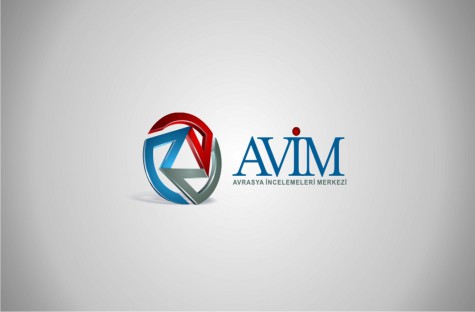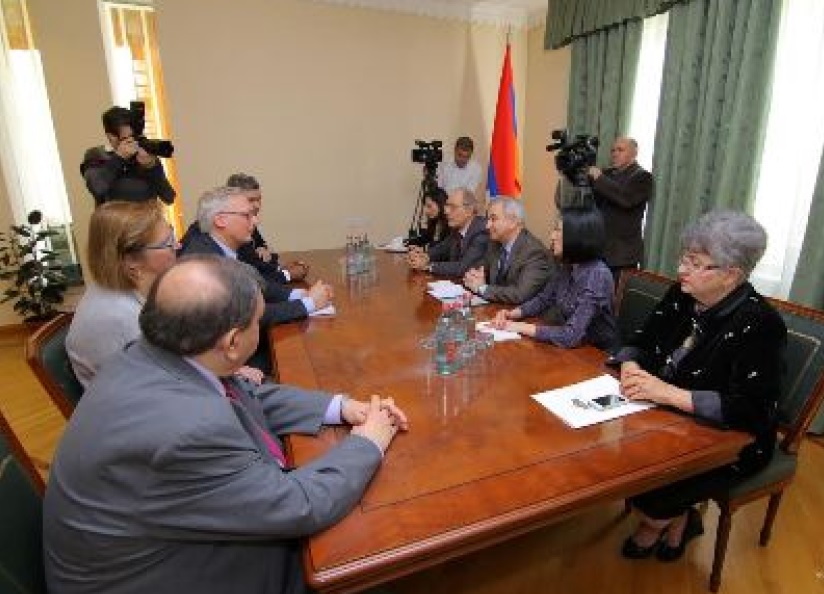The prestigious and respectable European Court of Human Rights, an organ of the Council of Europe (in which 47 countries are represented including Armenia), has announced its judgement on 15 October 2015 concerning the case Dr. Perinçek had filed against Switzerland.
As it would be recalled, in the speeches he made in Switzerland in 2005, Dr. Perinçek repeatedly expressed that the genocide narrative circulated by Armenian circles was an international lie. He was subsequently sued by Armenian associations in Switzerland and convicted by Swiss courts. Having exhausted all domestic remedies, Mr. Perinçek brought his case to the European Court of Human Rights.
The Second Chamber of the European Court of Human Rights found Perinçek’s application to be within the scope of a violation of the freedom of expression, and decided to take up the case. In its judgement that it announced on December 2013, the Second Chamber (constituted of seven justices) deemed Switzerland’s conviction of Perinçek to be unjustified, indicated that it was doubtful that there can be a general consensus on issues such as the events of 1915, and that it was open to discussion and a matter of debate. The Second Chamber therefore ruled that Switzerland had violated Perinçek’s rights, and ruled for the acquittal of Perinçek.
Upon Switzerland’s appeal of the judgment, based on the procedures of the Court, the case was this time reheard in the Grand Chamber (constituted of seventeen justices). The Grand Chamber announced its judgement on 15 October. In its 128 page-long judgement, in a more detailed manner, the Grand Chamber in essence reaffirmed the judgement delivered by the Second Chamber, found Switzerland to be unjustified in its actions, and decided for the acquittal of Dr. Perinçek.
Grand Chamber’s judgement is final, meaning there is no appeal to the decision. It is binding, meaning that it is the ultimate legal judgement for forty seven member countries. Also, it establishes a legal precedent for European Court of Human Rights.
There is no doubt the judgement is a major and binding judicial blow to Armenian narrative and allegations. For the Turkish citizens in Europe, it is a light of salvation from the ugly discrimination of accusations when they recite their own history, or even worse, being subjected to criminal charges before the courts. For the Turkish scholars, this judgement heralds the futility of the efforts to silence and subdue them with the psychological and moral pressure of presenting the Armenian narrative as the one and only, the absolute truth and fact. It provides the evidence that the events of 1915 is a subject of a legitimate historical discussion. It is the proof that the Armenian side is avoiding Turkey’s long-standing proposal to establish a commission of historians due to the fact that their claims and opinions are baseless and do not rest on an impartial historical study.
AVIM applauds Dr. Perinçek for his devoted legal struggle and the outcome.
With this judgement, the European Court of Human Rights proved that there are judges in Strasbourg. It is obvious that this decision was not easily taken and the Court was subjected to intensive lobbying activities, even pressures. The Court held its principles above all on this historically, politically, and religiously sensitive matter, and rendered a historical contribution to its prestige, reputation and the concept of the rule of law.
There are many lessons to be learned from this judgement and many corrections to be made by many European countries embracing the rule of law, Switzerland in particular. The legal aspect of the Armenian allegations adopted, supported, and even promoted by those countries for historical, political, and religious reasons is now evident beyond all question. From now on, how the principle of the rule of law will be applied will be followed in the light of this precedent.
© 2009-2025 Center for Eurasian Studies (AVİM) All Rights Reserved

 "WATER DIVINER"
"WATER DIVINER"
THE FAIRYTALES OF BOGHOS
 ARMENIAN ATTEMPTS FOR THE RECOGNITION OF NAGORNO KARABAKH AND BELGIAN PARLIAMANTERIANS’ VISIT TO STEPANAKERT
ARMENIAN ATTEMPTS FOR THE RECOGNITION OF NAGORNO KARABAKH AND BELGIAN PARLIAMANTERIANS’ VISIT TO STEPANAKERT
 RENEWED EFFORTS TO MANIPULATE PUBLIC AND SCHOLARLY DISCOURSES ON THE ARMENIAN QUESTION BY FINANCIAL MEANS
RENEWED EFFORTS TO MANIPULATE PUBLIC AND SCHOLARLY DISCOURSES ON THE ARMENIAN QUESTION BY FINANCIAL MEANS




























